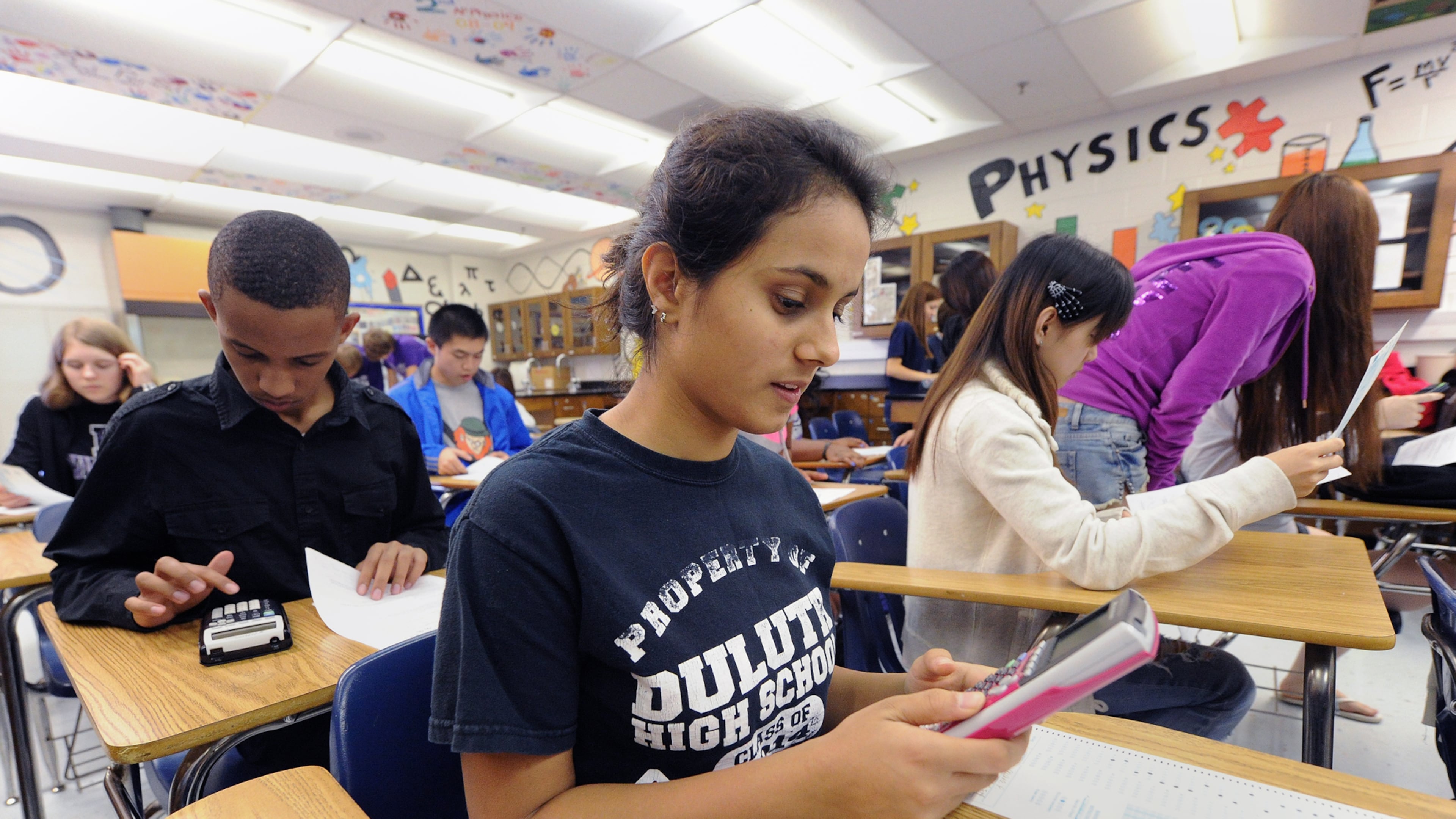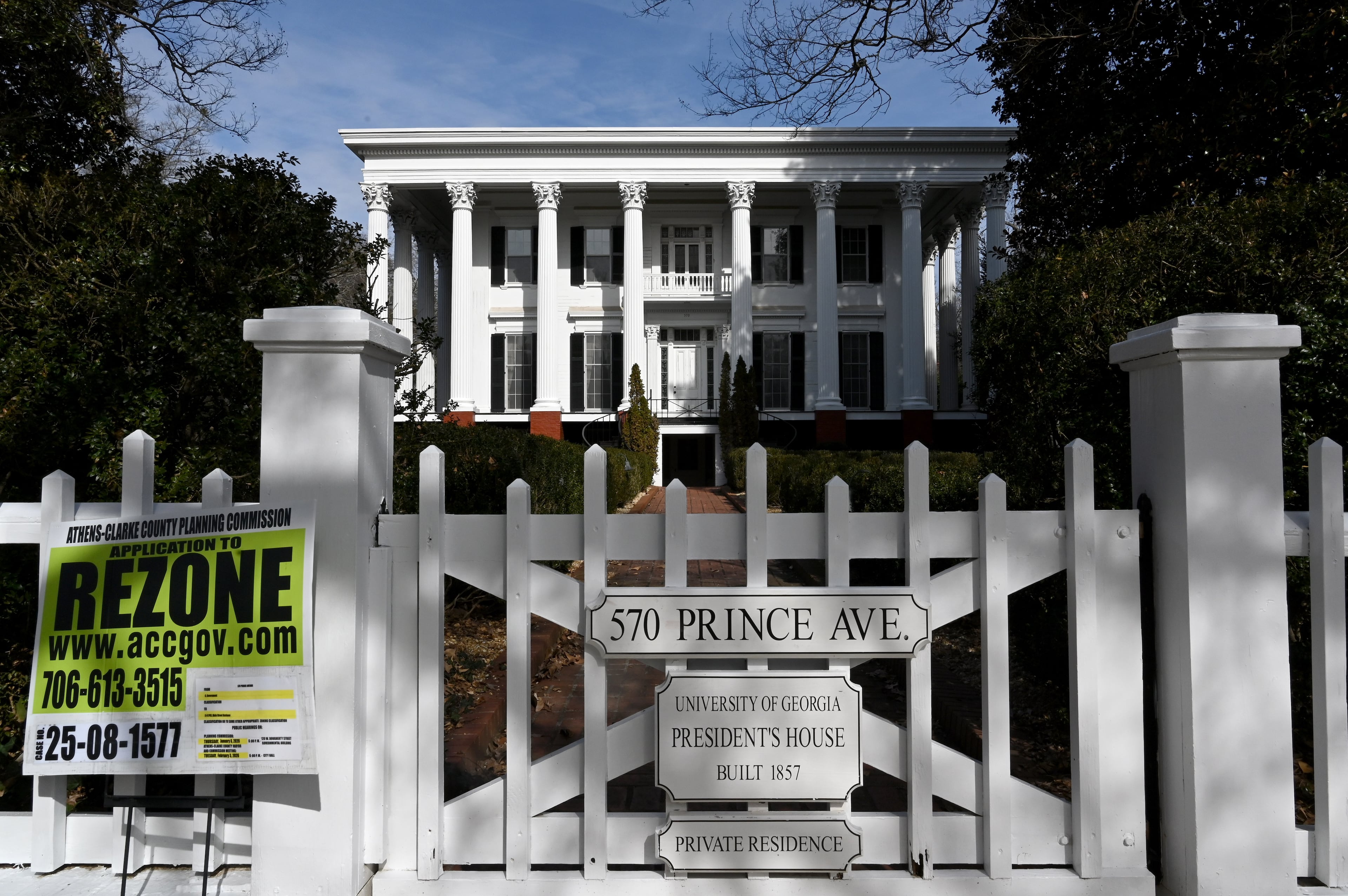College Board will shorten AP tests to give them online. Smart move?

While spring Intentional Baccalaureate exams for students seeking an IB diploma have been canceled in light of the pandemic, the College Board is proceeding with plans for online, modified Advanced Placement testing.
The International Baccalaureate Program announced this week that its exams, scheduled from April 30 to May 22 for diploma program and career-related program candidates, will no longer be held. Nearly 2,000 U.S. schools participate in IB, including 942 high schools, 36 of which are in Georgia.
Almost all Georgia high schools offer AP classes, which provide college-level content to students seeking acceleration. AP classes -- now offered in 38 areas and taught by certified teachers-- are typically taken by juniors and seniors.
Students can pay and sit for a voluntary, end-of-course exam to earn AP credit for a college class, depending on how well they score. (Some Georgia high schools require their AP students take the exam and cover the costs.)
Normally three hours long and consisting of multiple choice and free response or essay questions, the AP tests will now move online to a 45-minute format accessible on a computer, tablet, or smartphone. The College Board will post the specifics for each exam including dates in early April.
The exams will only contain material that should have been covered by most teachers through early March when schools closed their doors in response to the COVID-19 threat.
And the exams will not include any multiple-choice questions, only free-response questions that the College Board contends will inhibit cheating because they’ll draw on skills that can't be gleaned quickly from Google or chats with friends.
“The at-home exams are designed and administered in ways that prevent cheating; we use a range of tools and techniques, including plagiarism detection software, to protect exam integrity,” said Trevor Packer, head of the Advanced Placement Program.
The College Board is offering free, live, daily, mobile-friendly AP review lessons, taught by AP teachers from across the country, beginning today, March 25. Students without access to the internet or a device can contact the College Board for assistance.
In deciding to hold exams, the College Board said it surveyed 18,000 AP students, and 91% indicated they did not want testing canceled.
Not everyone believes the College Board made the right decision. Among the comments responding to the announcement on social media:
--Whom did you survey? First time I'm hearing of this. Your sample must have been miniature and to those privileged to have home internet access from Day One of this crisis.
--Lots of inequity and access issues with this plan. Second language kids on free response questions are at a disadvantage. Technology and internet access issues. What a mess.
-What about students who don't live in safe, quiet, non-toxic/-traumatic environments? Students who are disproportionately black, of color and poor... The predictable lack of empathy from this organization is stunning.
-Can you please consider having at least one testing with the old format? As a student who has been preparing for the old test all year, I fear the new 45-minute exam will not be an accurate representation of my skills, especially with so little time to prepare
-One question. How can you ensure that an expert is not sitting in the room with a child who is taking the exam?
-What about those students who are on the block schedule and not on year-long? Less prep time for sure. Is this not discriminatory in nature?
--How can a 45-minute test be sufficient to fully measure the students' understanding in a college-level calculus 1 and 2 classes? There is much less content can be tested in a 45-minute only test when compared to a regular length test. How to determine qualified scores?


